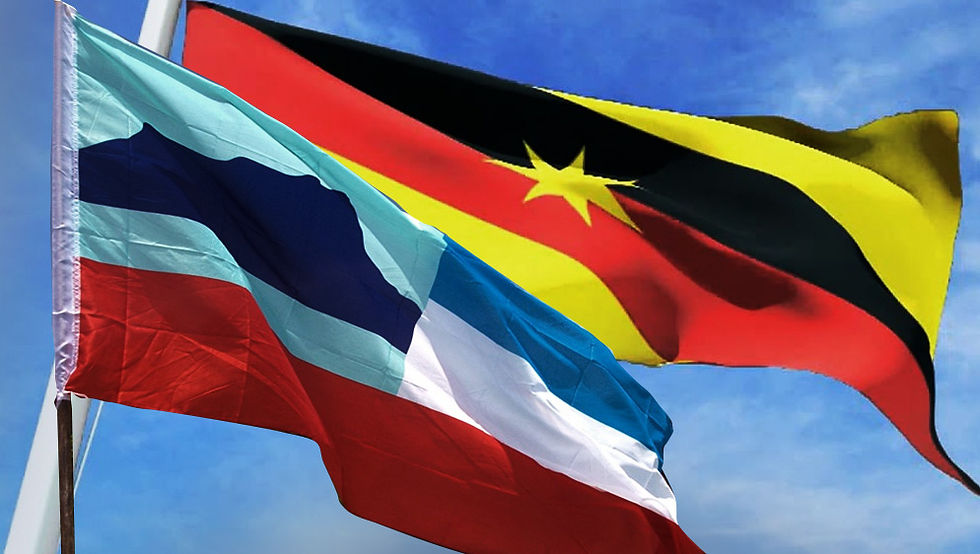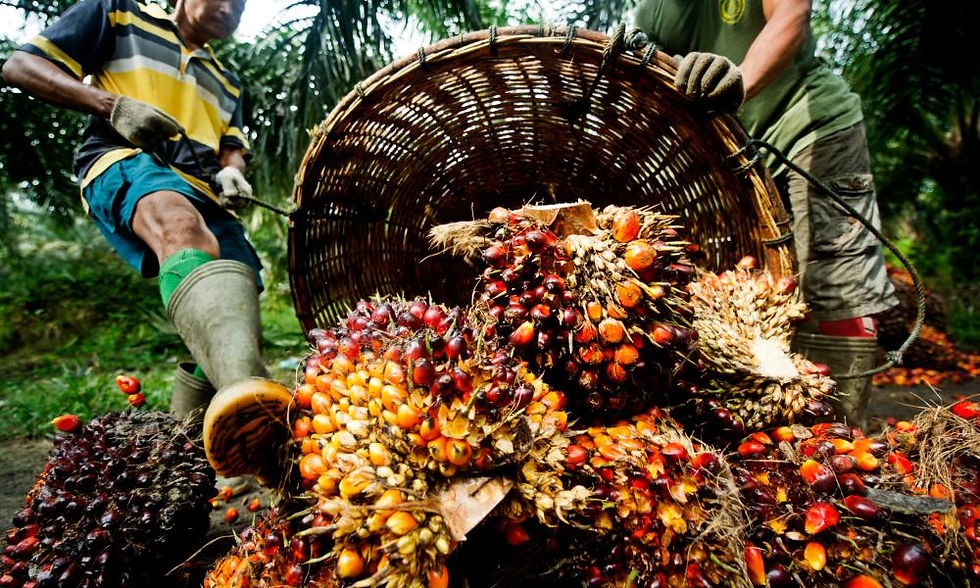61 Years Since MA63, Sabah is Still the Poorest Malaysian State
- Catherine Ooi
- Sep 19, 2024
- 5 min read
During a time of rapid decolonisation by the former British Empire, the Malaysia Agreement 1963 (MA63) was signed between the UK and Malayan government to form Malaysia. It was meant to bring Malaya as well as Sabah (formerly known as North Borneo) and Sarawak into a union with promising futures together.
While Sarawak has made strides in recent economic growth, neighbouring Sabah unfortunately still lags behind, facing numerous challenges to grow their economy, despite having an abundance of natural resources in their backyard. This divergence highlights some critical issues worth exploring as fellow Malaysians.
In this article, I will break down the economic disparities, the daily cost of living struggles, and what efforts are being made to boost Sabah’s economy, including recent government initiatives and potential investments.
Two Vastly Different Economies After MA63

61 years since MA63 was signed, in 2023, Sarawak’s GDP per capita stood at RM72,411 compared to Sabah’s RM31,147—reflecting a significant gap between the neighbouring states’ economic growth. This gap isn’t just a number—it affects the daily lives of Sabahans.
As the cost of living rises, many find themselves struggling to make ends meet. The economic disparity is evident in various aspects of daily life, from food prices to housing costs, especially for those at a lower and even middle income level.
High Costs, Low Wages in Sabah

People thought the daily life in Sabah was affordable, but it can be (relatively) expensive.
For example, a bowl of fresh fish meehoon soup or kolo mee via food delivery can start from RM12 to RM18. On top of that, housing prices have surged, with a 1-story terraced house costing around RM510,000 and rents reaching RM1,600 per month in some areas.
Yet, the average monthly income for general workers is between RM1,600 and RM1,700. This mismatch between costs and wages places a heavy burden on the average Sabahan family, making it a challenge to cover basic necessities easily while trying to save more for future plans or big life milestones.
Lack of Infrastructure Development
While Sabah is a popular tourist destination, locals face significant infrastructure issues. Underdeveloped roads make commutes longer and more expensive, affecting everyday activities like getting to work or school, especially for those living in rural areas of Sabah.
For students, reaching educational institutions in larger towns or cities is a struggle, limiting their access to better opportunities. Similarly, workers find it difficult to pursue better job prospects located in distant areas due to high commuting costs and time.
This lack of infrastructure not only inconveniences them but also slows down economic growth by limiting access to education and employment opportunities, key factors for bringing impoverished communities out of poverty lines.
Sabah’s Economic Struggles
Beyond infrastructure, there’s a further shortage of highly skilled jobs in Sabah.
As the Sabahan economy relies heavily on low-skill jobs in commodities, manufacturing, and ecotourism industries, it leaves little room for career advancement.
This lack of career opportunity has led many young, aspirational Sabahans to seek better prospects in Peninsular Malaysia or even overseas, contributing to a brain drain that further hinders the state’s much-needed economic development.
Over-Reliance on Commodities

As mentioned earlier, Sabah’s economy heavily depends on commodities like cacao, palm oil, and oil and gas exports. While these industries add to the state’s GDP, they haven’t grown fast enough to match the needs of Sabah’s 3.74 million people as of 2024.
This reliance on a narrow economic base limits the state’s potential for internal development and makes it vulnerable to fluctuations in global commodity prices due to the Sabah state’s heavy reliance on the commodities industry.
Tourism: A Booming Industry
Tourism (ecotourism specifically) is another key industry in Sabah, attracting 1,761,651
tourists as of July 2024. While this influx of visitors is great for local businesses, the wealth generated doesn’t trickle down to the average citizen evenly.
Despite receiving many tourists into their lands, many Sabahans don’t feel the benefits in their everyday lives. The industry alone hasn’t been enough to drive substantial economic growth or significantly reduce poverty in general.
The Importance of Infrastructure
However, for Sabah to truly unlock its potential, significant investment in infrastructure is necessary. Improved roads, schools, and hospitals could create a more conducive environment for businesses, leading to more job opportunities.
The current state of public utilities and infrastructure is also holding the state back, making it difficult for businesses to operate efficiently and reducing the quality of life for residents.
Recent Government Efforts

Nevertheless, the current Chief Minister of Sabah, Datuk Seri Hajiji Haji Noor, recognises these challenges and is focussing on attracting foreign investments in technology and renewable energy into Sabah.
The goal is to diversify Sabah’s economy away from its sole reliance on commodities, creating more high-value jobs that have better pays. This shift could enhance the spending power of Sabahans, improving their overall quality of life and boosting economic growth domestically.
New Investments on the Horizon
There’s hope on the horizon with potential investments in Sabah’s tech sector too!
Recent news reported that the US-Asean Business Council and Chinese investors have shown interest to do so, which could help diversify Sabah’s economy, creating more high-skill jobs, and improve the GDP per capita.
If these investments materialise, they could provide the economic boost that Sabah needs to move towards a more balanced and sustainable growth model.
Sabah’s Push for Autonomy

Prime Minister Anwar Ibrahim has recently committed to fulfilling promises under MA63 for Sabah, including transferring regulatory power over gas supply and appointing state representatives to the Inland Revenue Board. While this is a positive development, the journey to gaining full autonomy is not without its challenges.
Sabah’s demand for 40% revenue from the federal government is still pending, and there are concerns about needing royal assent and navigating political considerations. However, this push for autonomy signals a promising shift toward greater state control over resources, which could be pivotal for Sabah’s economic future.
Sabah’s Resource Management
Although MA63 promised Sabah to have control over its natural resources, much of this control has been handed over to federal agencies. Gaining it back could allow Sabah to fully leverage its natural assets for economic growth.
More financial autonomy means the potential for investing in infrastructure projects that can benefit everyday Sabahans, improving their quality of life.
Sabah’s GDP Outlook

Investments in technology and renewable energy could be game-changers. With interest from the US and China, Sabah has the chance to broaden its economic capacity, moving beyond its current reliance on commodities and tourism. This diversification could pave the way for more high-skill jobs and a more robust economy.
Promising Sectors & Economic Transformation
Looking ahead, the signs are promising.
Anwar’s commitment to MA63 and the interest from foreign companies in technology and renewable energy suggest that Sabah could be on the brink of significant economic transformation. If successful, these efforts could turn Sabah into a hub for green energy and tech innovation, driving further economic growth.
Hope for the Future
In summary, while Sabah faces significant challenges, there are also ample opportunities for growth. The steps being taken toward greater autonomy, attracting foreign investments, and diversifying the economy are all moving in the right direction. If Sabah can tackle its infrastructure issues and create more high-skill job opportunities, the future looks bright.
After 61 years since the MA63 was signed, it’s time for Sabah to fully realise its economic potential. Let’s remain hopeful for Sabah’s journey towards progress and prosperity!
Subscribe to our financial newsletter for the latest news, insights, and advice on personal
finance, investing, and more. With every email, you’ll gather the confidence and knowledge to make informed decisions to achieve your financial goals.



